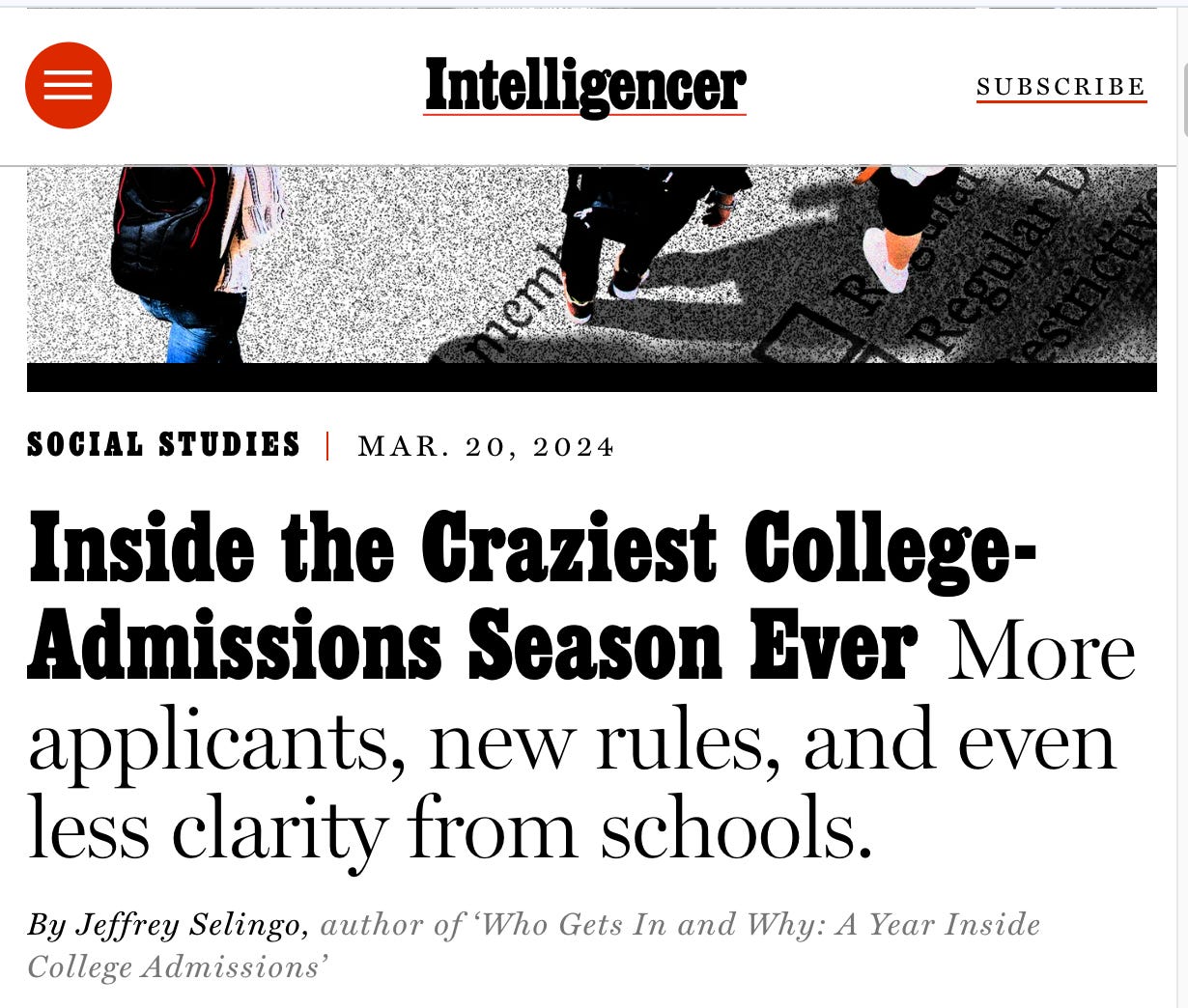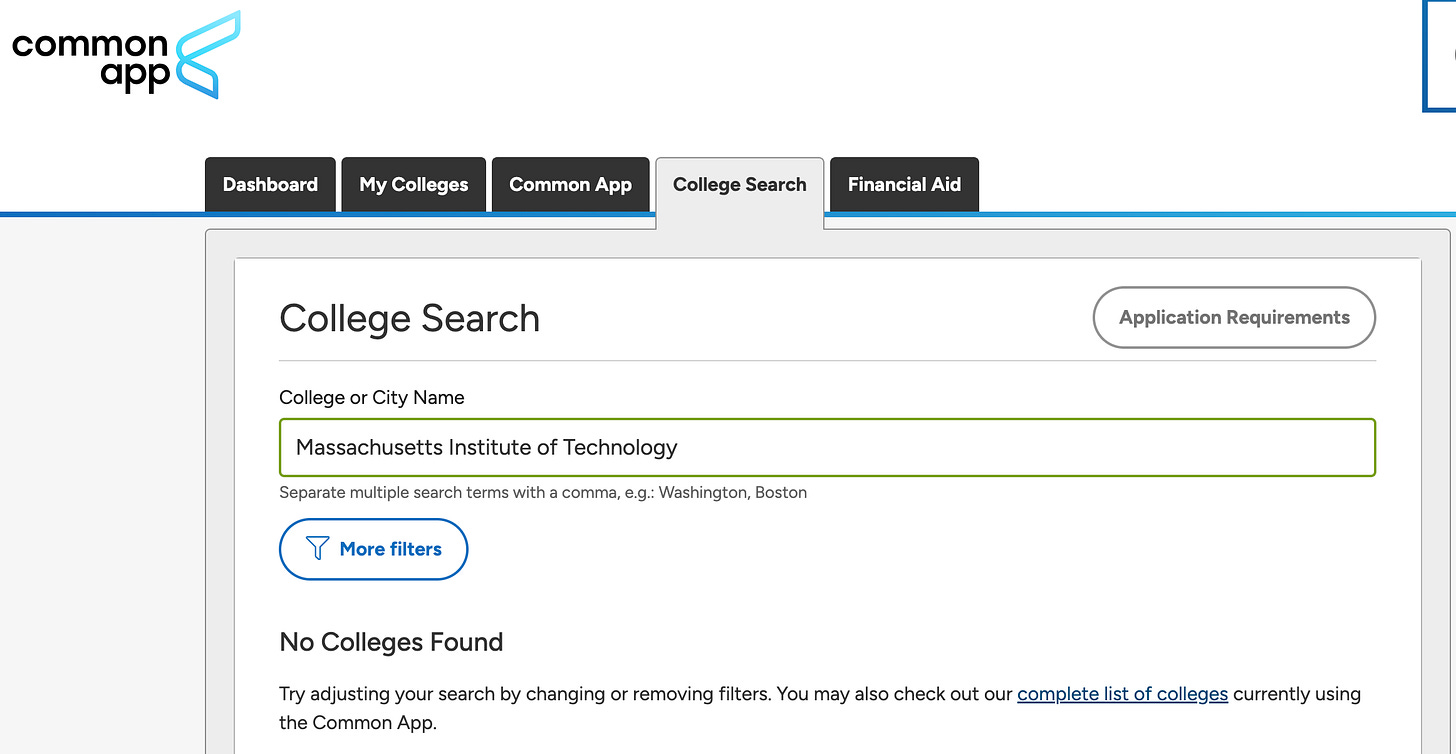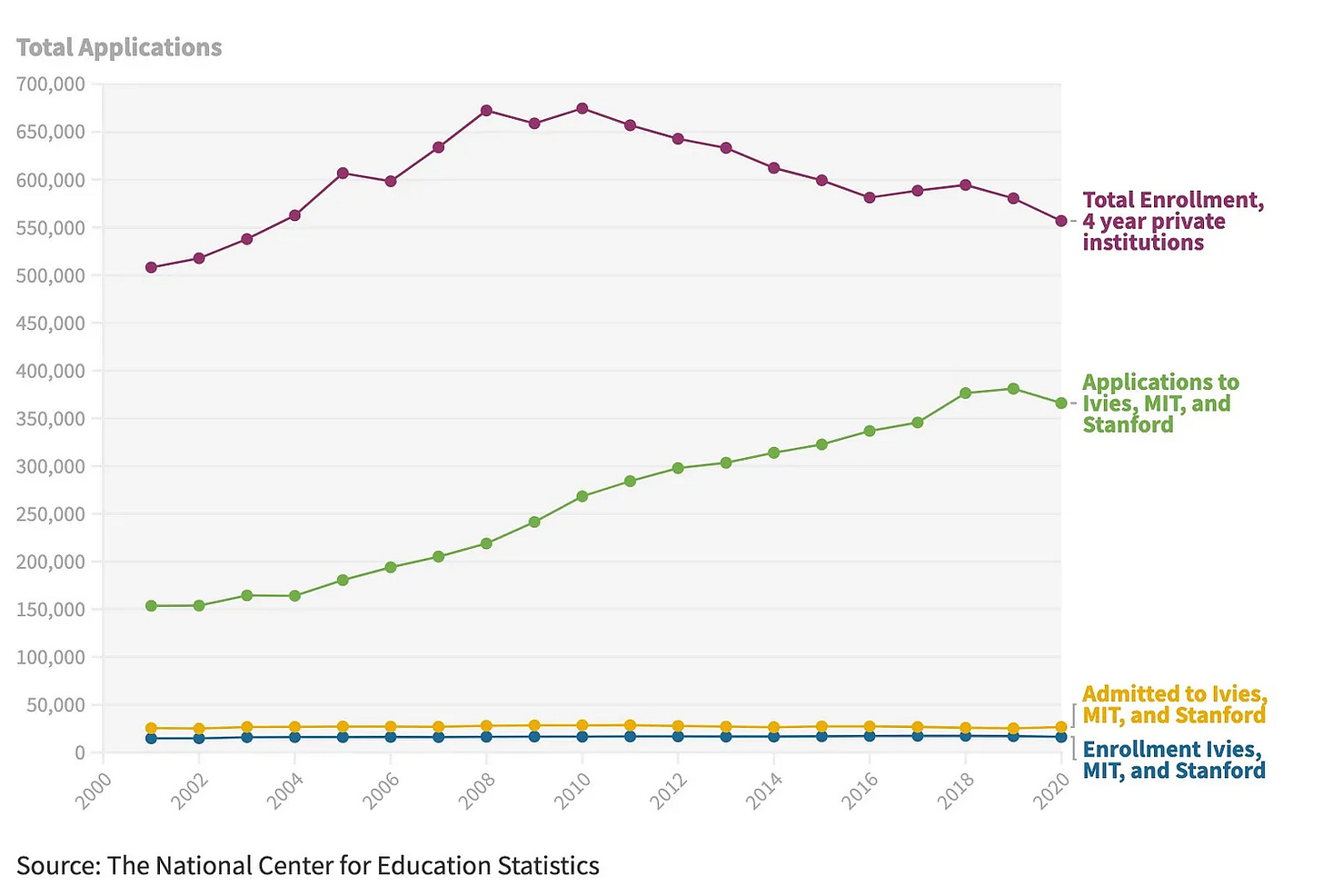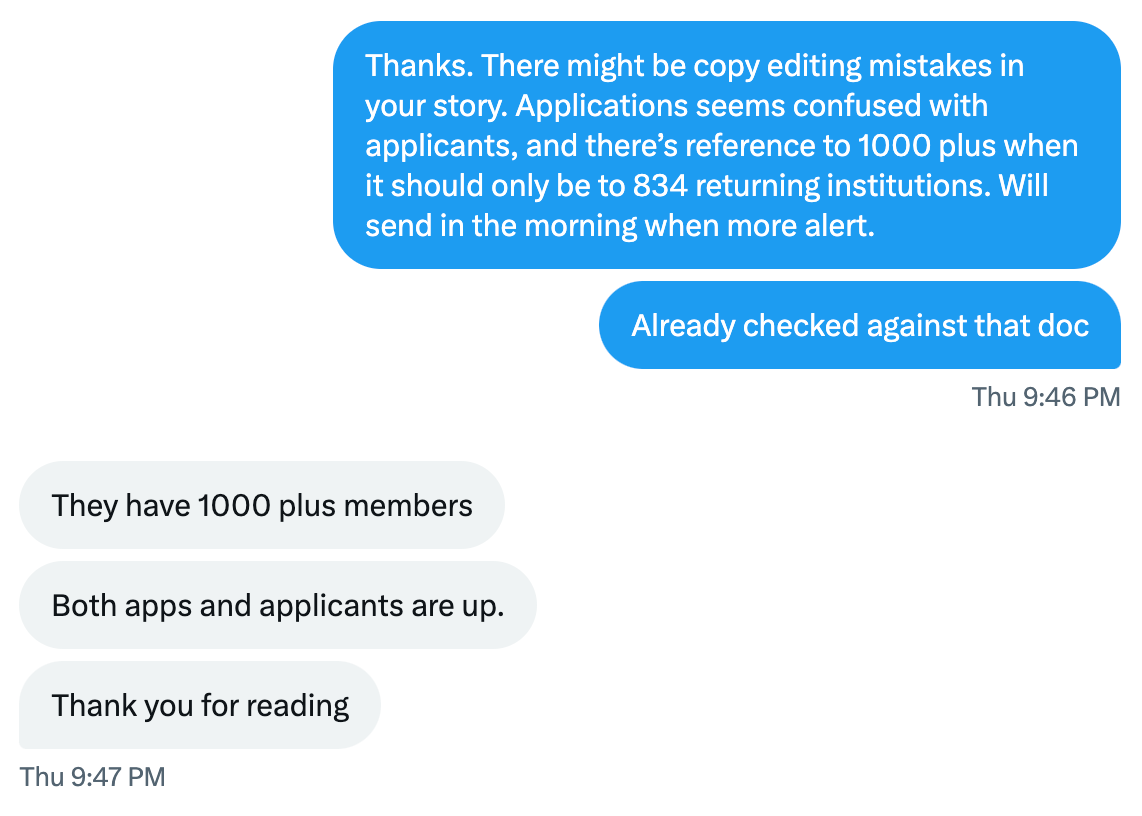Today's fact check: The number of applicants to U.S. colleges increased this year.
The reality: We don't know what these numbers are. But that hasn't stopped New York magazine from publishing another one of its Admissions Scary Tales.

New York Magazine has dropped another Admissions Scary Tale, this time by Jeffrey Selingo, the self-styled college admissions expert and author of the book Who Gets In and Why.
You remember. He’s the one who claimed that standardized test scores aren’t important because admissions officers didn’t talk about them when he was in the room observing their deliberations for a book.
Selingo claims that this admissions season is going to be “the craziest ever” with “more applicants, new rules, and even less clarity from schools.”
Are there more applicants though?
Selingo does not provide any evidence that there are.
He does, however, say the following:
As this year’s college-admissions season nears its close, with decisions arriving from schools this month, it is already shaping up as the craziest ever. Applications to the 1,000-plus colleges that are part of the Common Application are up 6 percent over last year’s total, which was already a record. It’s a continuation of a dynamic that began in the spring of 2020, when the pandemic forced hundreds of top-ranked colleges to drop their requirements for standardized-test scores and generated a surge of applications as a result.
Thirty years ago, this paragraph would never get past an editor in the national business press, at least not the ones I wrote for.
There are just so many little mistakes that combine together to create a misleading impression of college admissions.
Data on 834 schools, not 1,000-plus schools
The Common App did not publish data on 1,000-plus schools. It published data on 834 returning members from 2019. Therefore, we can’t make any accurate statements about the growth in the total number of applications submitted to all 1,000-plus members of the Common App.

Incorrect figure on application growth
The number of applications went up 7 percent not 6 percent.

We don’t know how many applications were submitted to these schools
We also don’t know how many applications in total were submitted to the 834 institutions counted because these accept applications from multiple platforms including a school’s own application system (e.g., Apply Texas), Questbridge, and the Coalition/SCOIR system.

Applicants could be switching platforms
Because we don’t know the total number of applications submitted, we don’t even know if the number of applications to these schools is increasing. Maybe more students are sending in more applications in total or maybe students are migrating to the Common Application from other available platforms.
Not all schools are on the Common App
We also don’t know if total applications to elite schools are up because several do not use the Common Application. These include MIT, Georgetown, the University of California system, and the California State Colleges system. In fact, only 1,100 of the approximately 2,637 four-year colleges in the United States.
More reliable data sources
Parents wanting to understand admissions trends should look at the NCES data or aggregate it themselves from the Common Data Set files that colleges release each year. Unfortunately, such data will not be available until the 2024-2025 school year.
The number of applications has been rising for more than two decades
Next, Selingo claims that the growth in the number of applications is relatively new.
It’s a continuation of a dynamic that began in the spring of 2020, when the pandemic forced hundreds of top-ranked colleges to drop their requirements for standardized-test scores and generated a surge of applications as a result.
After COVID, students with high grades and low test scores did take a run at elite schools, but that’s part of a long term trend of rising applications to elite schools.
Selingo’s response
I did send Selingo a question about this data, and he was kind enough to reply with an updated March 2024 Common App publication and the following.
He did not respond to my other questions about the other issues raised above.
Ask an honest expert who understands data
My point here is that many people who claim to be experts in admissions are not. Some don’t even appear to understand very basic data. When looking for someone to help you understand admissions, you should
Ignore journalists and anyone else trying to hype up the difficulties of getting into competitive schools.
Talk to experts who are both honest and who understand data.
Please let me know if you want me to fact check the rest of the article. Just this paragraph gave me a headache.






